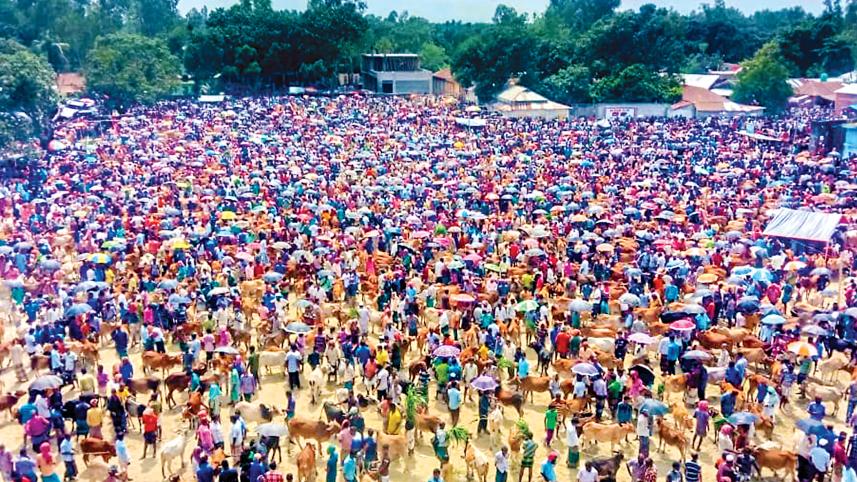Have we given up on trying to curb Covid-19?

As the eight-day "easing" of the "strict" lockdown is passing us by, reports are flooding in from all directions about how health and safety regulations are neither being enforced nor being followed, and how Covid-19 infection cases and deaths seem to only be rising. According to DGHS data, in the first 16 days of this month, at least seven people were infected every minute with the virus, while 2,962 deaths were recorded during the same number of days—already the highest death count in a month since the beginning of the pandemic in March 2020.
But these facts and statistics seem to be of no value as people flock to shopping malls and cattle markets, highways face huge tailbacks, and streets everywhere are teeming with vehicles. What is more alarming is that all of this is happening with practically no resistance from authorities. Though the cattle markets of the capital were not set to open before July 17, reports by this daily stated that most have been operative since last Friday but with no health facilities (such as hand-washing facilities or hand sanitisers) available at the venues, nor any government representatives present to enforce social distancing and mask-wearing. Now, with the easing of the lockdown, reporters have also found the capital's shopping areas to be operating in the usual overly crowded, pre-Eid manner—sans social distancing and the proper wearing of masks. We cannot help but wonder if the lockdown has been eased or completely lifted.
However, our biggest concern is the government's continued lack of planning and foresight when it comes to managing this pandemic. As experts have observed, the government's tactic seems to be to tackle problems as they arise, their approach more reactive than proactive. Though the treatment of infected patients must be prioritised, it is equally important to curb the spread of the virus. This includes taking measures such as exploring all options for acquiring Covid-19 vaccines, rigorous testing and contact tracing of the virus, urging people to get inoculated and making the registration process accessible for every citizen, and of course, enforcing the basic health guidelines of wearing masks, social distancing and maintaining proper hygiene. Is it possible that the authorities are not seeing the lack of public awareness about the impacts of the virus and their unwillingness to voluntarily practice safety measures unless strictly enforced? A report by this newspaper cites a member of the National Technical Advisory Committee on Covid-19 saying that "till date, no targeted intervention to contain the transmission of Covid-19 has been seen", and that few of their recommendations have been implemented by the government. We can now only hope that the government will soon come up with a cohesive, informed and long-term plan to combat the pandemic, and prioritise the health and safety of citizens above the economy and all else. Although we are currently going through Bangladesh's worst phase of the pandemic, the continuation of such haphazard interventions might very well face us with a situation worse than the rest of the world has seen.



 For all latest news, follow The Daily Star's Google News channel.
For all latest news, follow The Daily Star's Google News channel.
Comments